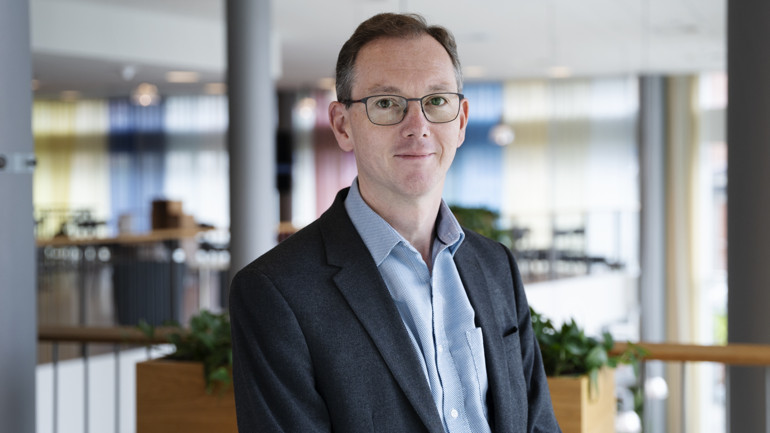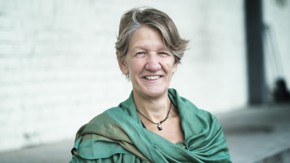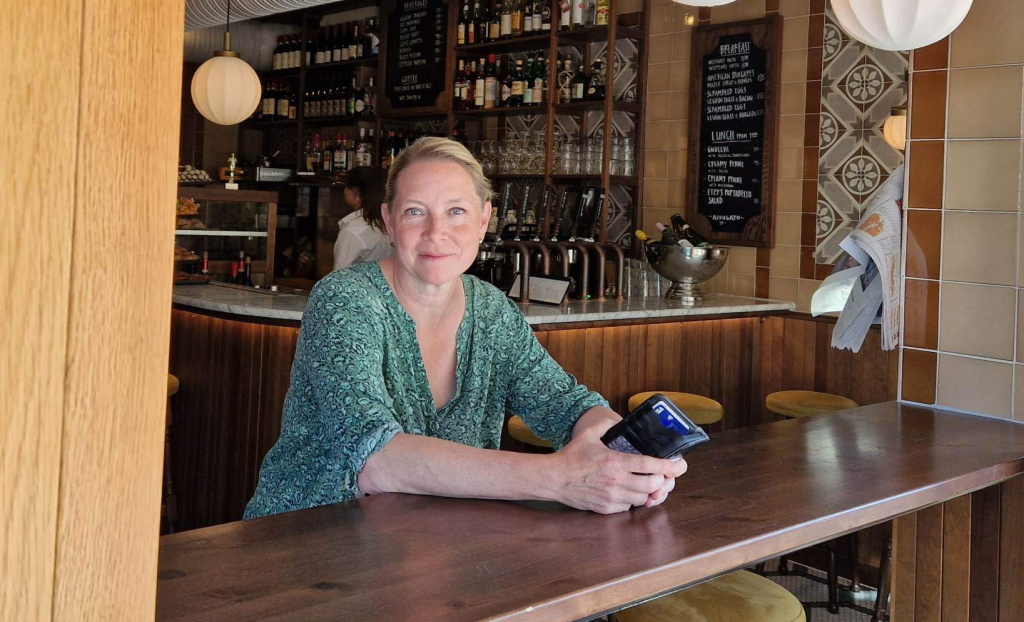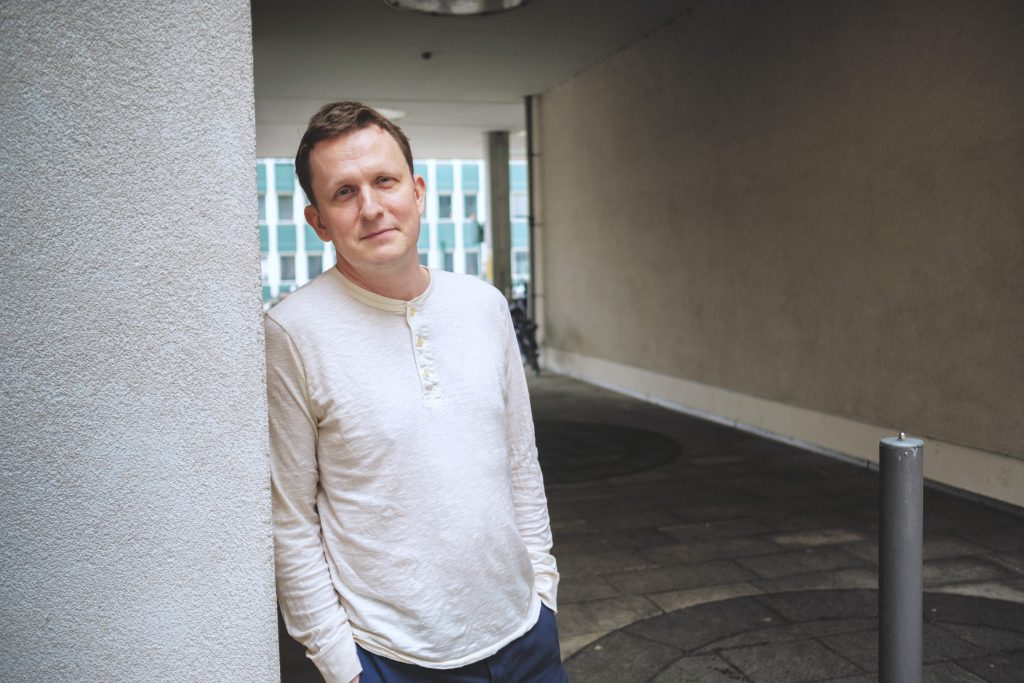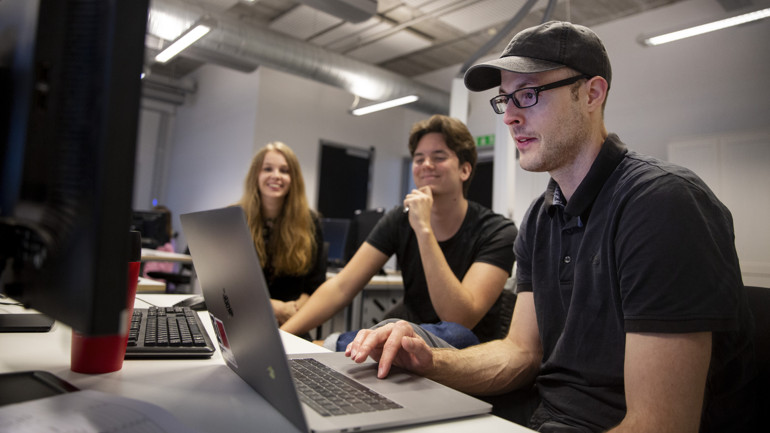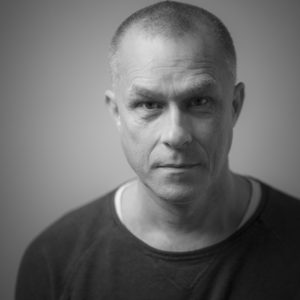Marie Öhman är sedan augusti i år ny prefekt på institutionen för konst, kultur och kommunikation (K3).
Hej Marie! Hur har din första tid som prefekt varit?
Det har framför allt varit roligt! Det är alltid intressant och lite hälsosamt prövande sådär att lära känna en ny organisation med allt vad det innebär av nytt innehåll, nya rutiner, roller, akronymer osv. Och jag är mycket glad över mina nya kollegor vid K3 och fakulteten! Jag är imponerad över allt engagemang och all kreativitet som finns här och det är mycket roligt att vara tillbaka i en verksamhet med tyngdpunkt på hum/sam, efter en lång period med ansvar för lärarutbildningsfrågor.
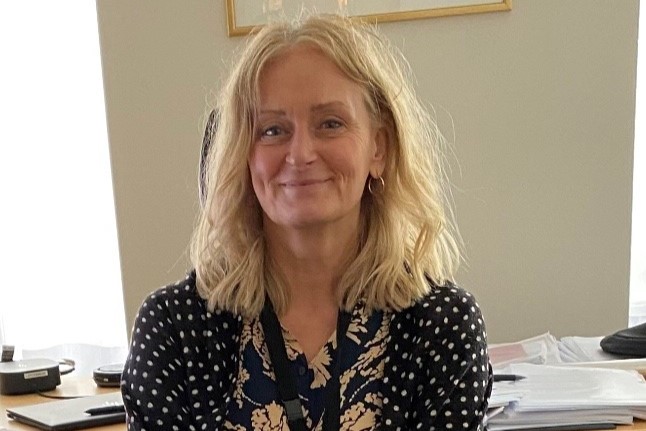
Vilka frågor är i fokus just nu på institutionen?
K3 firar 25 år i år och visst fokus de gångna veckorna har legat på planering för att fira det. I övrigt håller vi på med programutveckling inom humaniora och har precis lämnat in en programidé till Fakultetsstyrelsen. Vi ägnar också en del uppmärksamhet åt frågan hur vi ska arbeta inom våra sammanhållna kunskapsmiljöer och hur dessa förhåller sig till pågående initiativ till centrumansökningar. Lokalfrågorna är viktiga för K3 därför håller vi också på med en översyn av hur vi kan skapa de bästa förutsättningarna för våra utbildningar som förutsätter tillgång till verkstäder och ateljéer och som har en helt annat behov av fysisk tillhörighet än många andra utbildningar. Jag som är relativt ny som ansvarig för organisationen försöker också kasta en blick över befintliga mötesformer och arbetssätt för att säkerställa att de möjliggör kollegialt inflytande och systematiskt arbetsmiljöarbete.
Var är ni i arbetet med sammanhållna och gränsöverskridande kunskapsmiljöer?
K3 har en stor bredd i verksamheten och en utmaning framåt blir att hitta en bra balans för att ta tillvara den bredden och samtidigt stärka den gemensamma miljökärnan/miljöidentiteten. Den långa erfarenhet och stora kunskap som våra professorer har kommer att bli centrala i det arbetet och i nuläget pågår under deras ledning ett planeringsarbete, för att ta fram aktiviteter för nästa år som kan bidra till just detta. Vi har i verksamhetsplanen för kommande år plockat upp många av de utvecklingsmöjligheter som uttrycks i KS agenda för sammanhållna gränsöverskridande akademiska kunskapsmiljöer och skapat processer för att på kort och lång sikt ro dessa i hamn. På en övergripande strategisk nivå ser jag att vi kan systematisera den goda samverkan som finns mellan K3 och det omgivande samhället. Och jag ser att vi behöver arbeta för att på lång sikt utöka vår forskarutbildning.
Fakta:
Var bor du?
Jag har min utgångspunkt i Eskilstuna och veckopendlar till Malmö. I Malmö bor jag precis bredvid Pildammsparken.
Har du familj?
Jag det har jag: en man, två vuxna barn och två katter
Har du något fritidsintresse/hobby/dold talang e.d.
Jag reser en hel del och väljer gärna resmål efter berömda hotell och restauranger som jag vill besöka. Jag är bra på att laga desserter och kan recitera orimligt många repliker ur Sjöwall och Wahlöös serie Roman om ett brott.
Händer i december
Migration seminar: Kids in action promoting health equity in socially deprived areas
Thursday 7 December, 14:15 – 16:00
Niagara, Nordenskiöldsgatan 1, or Zoom
Re-Imaginatorium 1: Samskapande Malmö 2040
Fredag 8 december, 09:00 – 16:00
Media Evolution, Stora Varvsgatan 6a
Human rights festival
Lördagen den 9 december 2023
Lund, Stadshallen
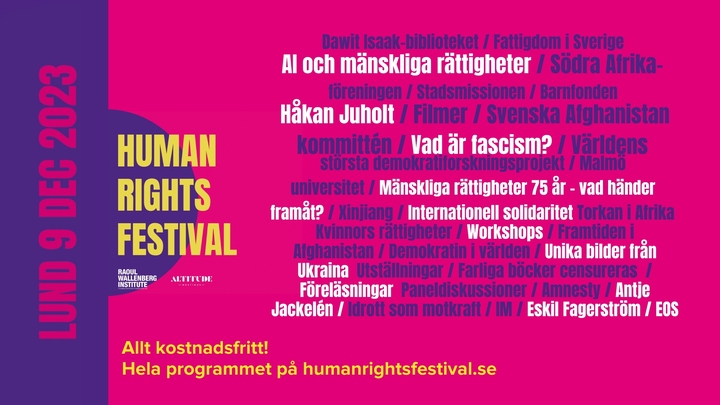
Frukostmöte om mänskliga rättigheter
Måndag 11 december, 08:30 – 10:00
Nereus, Representationsrummet, plan 3
Virtuell UNIC-konferens: Tillvägagångssätt i ‘superdiversa’ städer: religion, samhälle och kultur
Måndag 11 december, 10:00 – Tisdag 12 december, 13:30
Please note that the listed events are only a selection of all events taking place at Malmö University. Go to the full list of events and register..
Do you also want your event to appear in the calendar? Here are instructions on how to publish in the calendar.

